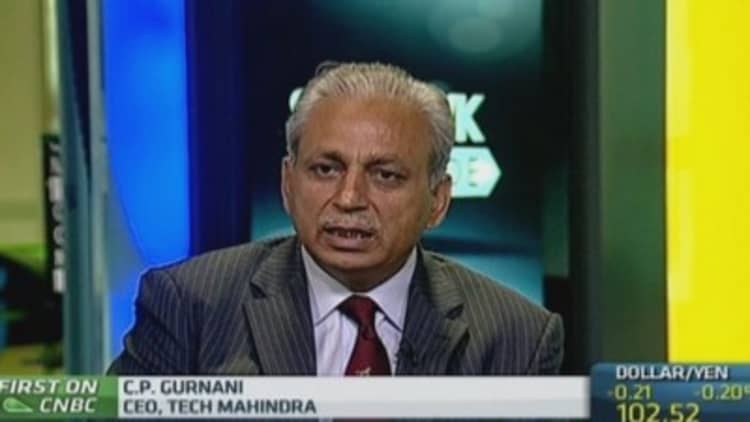Just a month after a landslide election win India's new government finds itself having to take immediate action to fulfill a pledge to contain inflation.
With data this week showing wholesale price inflation at five-month highs, the government on Tuesday imposed restrictions on some farm commodities and ordered a crackdown on hording in a bid to contain rising food prices.
The steps are necessary to stop inflation from getting out of control, analysts say. The danger for Prime Minister Narendra Modi, they say, is to ensure the measures don't conflict with the long-term goal of boosting investment into a sluggish Indian economy.
Read MoreMonsoon: the new threat in India's inflation battle
"From a near-term perspective, the action is a necessary evil," said Vishnu Varanathan, a market economist at Mizuho Corporate Bank. "The export restrictions are a knee-jerk reaction to keep enough stocks on shore to ensure that food supply doesn't get squeezed."
"But it's not good for medium-term policy because barriers on exports become ad hoc and that's not the right kind of signal a pro-investment, pro-global trade government wants to send," he added.
Data on Monday showed India's wholesale price index rose to 6.01 percent on-year in May, from 5.20 percent in April, driven by a jump in onion and potato prices.

Annual consumer price inflation, targeted by the central bank, eased to 8.28 percent in May from a three-month peak of 8.59 percent in April.
Still, forecasts for weak monsoon rains that irrigate most of India's food production have raised the risk of consumer price inflation moving back up.
"The price spikes we've seen in the past few years are becoming a recurrent problem," said Rahul Bajoria, a regional economist at Barclays. "The measures announced this week will help contain inflation, but they are not enough," he added.
Read MoreIndia's Modi gets ready to join inflation battle
Mizuho's Varanathan said in addition to addressing immediate inflation pressures facing India's economy, the government needs to address long-term issues that have contributed to higher food prices.
"On top of logistics issues such as transport and storage there's also an issue about the distribution of food stocks," he said. "That entire distribution channel has always been vulnerable to graft and hording; it is inefficient and is something they could tackle at the core."
Barclays' Bajoria added: "Once they [the government] can get a handle on food inflation, they should be able to get trend inflation lower."
Read MoreThis country may spark next commodity super cycle
The Reserve Bank of India aims to bring the consumer price index down to 8 percent by January 2015 and 6 percent the year after.
Analysts say the government has made the right noises about taking decisive action to bring down inflation and hope to see more details on how it plans to win the inflation fight over a longer term in next month's budget.
"The continued emphasis on taming inflation by addressing supply-side constraints is reassuring as it chimes with the Reserve Bank of India's proposed move towards inflation-targeting," said Shweta Singh, an economist at Lombard Street Research, in a note.


